
By Judy Carmack Bross

The Anti-Cruelty Society CEO Tracy Elliott speaks at the 125th Anniversary Gala Kick-Off Reception.
What could be better than a welcoming committee of puppies and kitties all with a bright future thanks to The Anti-Cruelty Society which launched its 125th Anniversary Gala Kick-Off recently. With a vision to build a humane Chicago for pets and people, CEO Tracy Elliott talked about the future for Chicago’s oldest and most comprehensive animal welfare organization.
“In our momentous 125th year ahead, outdated spaces for animals are getting the love they deserve. With renewed dedication, we’re expanding facilities, pioneering innovative adoption programs, and enhancing animal care standards. This landmark year embodies our commitment to a brighter future for every furry friend we serve.”
A ribbon cutting on March 7 and a gala at the Geraghty on March 9 will celebrate the 125th. Dan Jaffee heads the 125th committee and Jan Luiso is Board Chair. Gala Co-Chairs are Peggy Austin and Lauren Wolven.
Founded in 1899, The Anti-Cruelty Society opened the first charity veterinary clinic in 1916. Providing low-cost veterinary care is as fundamental a service today as it was then when most veterinary facilities for small animals were non-existent. Their commitment to being an open door and insuring the best care date back to programs from the 1930s.

Sarah Ames with little friend.
“Being a volunteer at The Anti-Cruelty Society is rewarding in more ways than one. It just feels good when you can clean a kennel and make an animal feel more comfortable. And it’s so exciting when you interact with the animals and they start to accept cuddles, start to play, or even just eat a bit more and are a bit less stressed. And it’s the best feeling when I could play a little role in an adopter finding a new best friend and an animal finding a new home. It’s also a healthy, fun, interesting and educational distraction from my day job as a lawyer and I very much enjoy working with the other volunteers and the amazing staff.”

New Cat adoption space.
Ames told us more about the new cat spaces which are part of the 125th plan and the benefits they bring for both cats and potential adopters:
“By being able to move around more and being less confined, the cats are hopefully a bit more relaxed and thus their personality will show better which should help them getting adopted faster. Hopefully it will be a bit quieter which also reduces stress in the cats and helps them to come out of their shell more: it could be a great opportunity for the shy and quiet cats to be seen more as it will be harder to overlook them now that they are not in a bottom kennel that is difficult to reach.”
“By being able to stretch and move around and perhaps play with other cats, they will be more relaxed which may reduce the time it will take in a new home to decompress. It will be easier for visitors and potential adopters to interact with several cats at once, which in turn will give them more choices. Perhaps they meet and like a cat which they would not have considered otherwise because of age. And they get a better sense of the nature of the cat or cats they may be interested in if they interact with them in the cats’ environment.”
“It will likely be a lot less wasteful and environmentally friendlier as a lot less material is needed to line cages. It should also be easier and faster to clean the cat rooms and thus more time can be spent socializing the cats.”
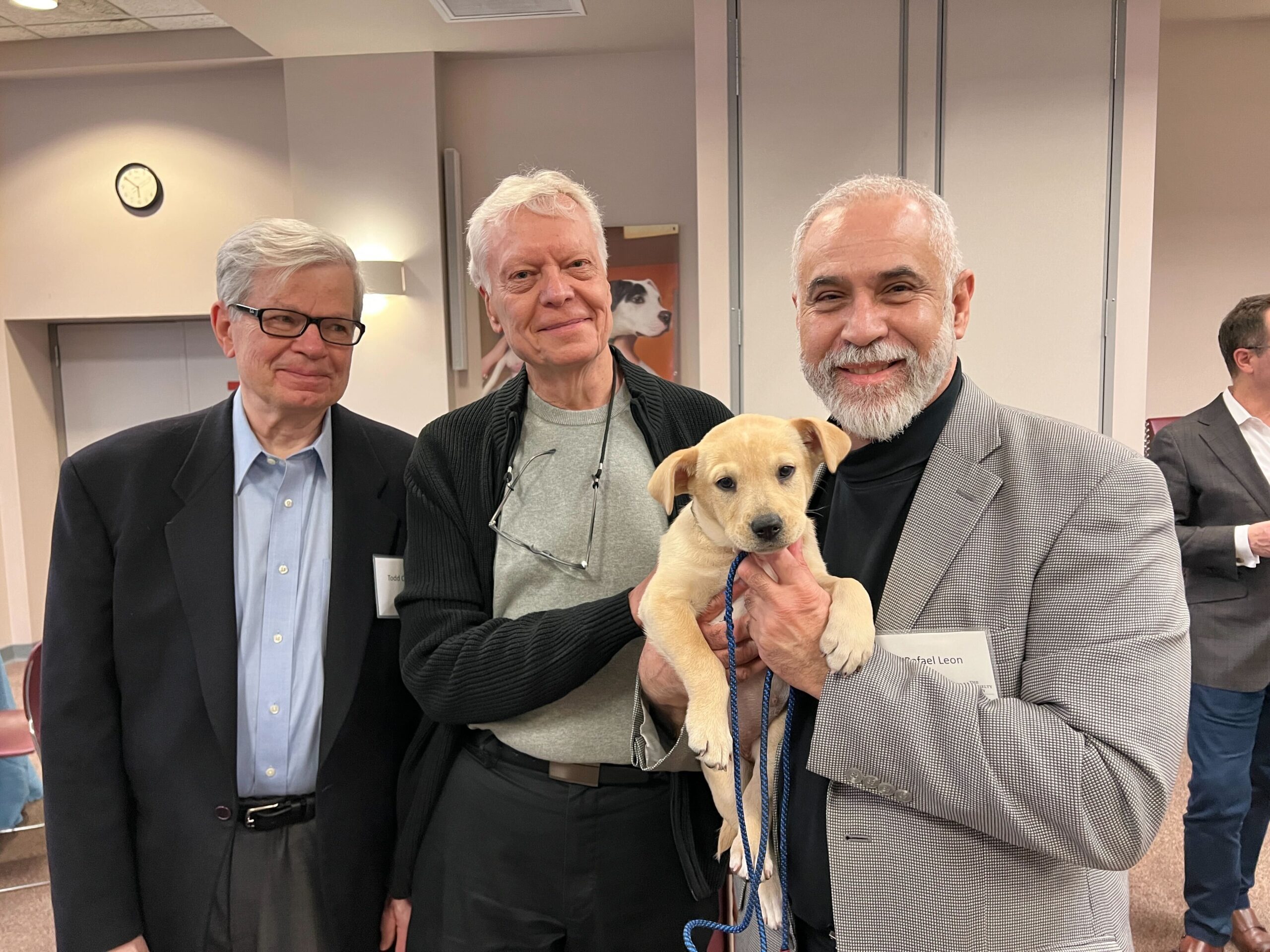
Todd Cannon, David Narwich and Rafael Leon, with Hedgehog.
With a typical shelter intake of around 6,000-7,000 animals per year, with 60 percent cat intake, 40 percent dog—Anti-Cruelty has dog kennel capacity of 139 kennels and cat kennel capacity of 344. Last year, 4,263 animals found their forever homes through adoption, 1310 pets were fostered, 6,276 animals were spayed and neutered, almost 150,000 pet meals went to under-resourced communities and volunteers served almost 62,000 hours.
At the Gala Kick-Off, guests saw plans to renovate and upgrade animal housing rooms to tackle the largest problem facing sheltering, the length of stay. Expanding in-shelter veterinary services is one of several ways ACS is making to combat vet shortage in Chicago.
In addition, ACS will deploy an affordable mobile care clinic to increase access to veterinary services for people and their pets, removing payment barriers and keeping animals in their homes. The onsite Care Clinic is expected to reach 2,000 patient appointments during its first year as well as 500 spay/neuter patients and 1,799 wellness patients.
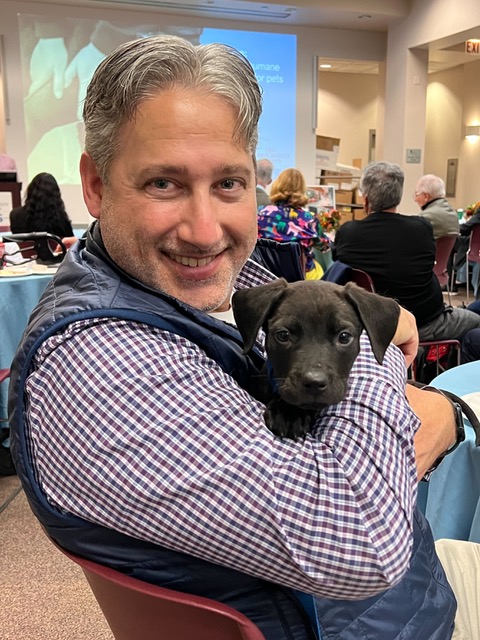
Jeffrey Hoffenberg with friend.
ACS announced the Roseland Immersion Project to provide direct support to families living in the Greater Roseland region, establishing a physical service center which will engage 4,500 community members and help almost 4,000 pets. A Career Pet Academy will be created in the community to provide workforce development, equipping people with resources and skills to take care of animals in their community.
Celebrating the past will also be part of the 125th events.
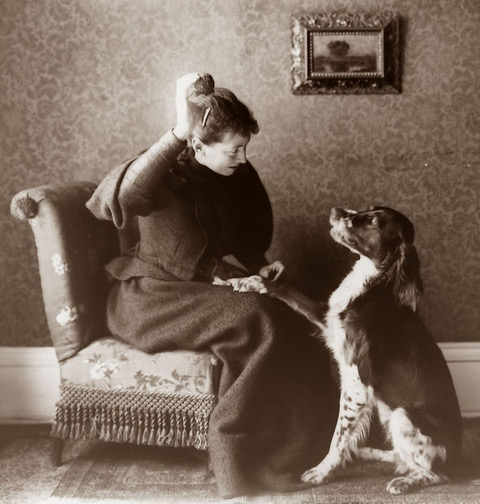
Founder and first President Rose Fay Thomas who was married to Theodore Thomas, founder of the Chicago Symphony Orchestra.
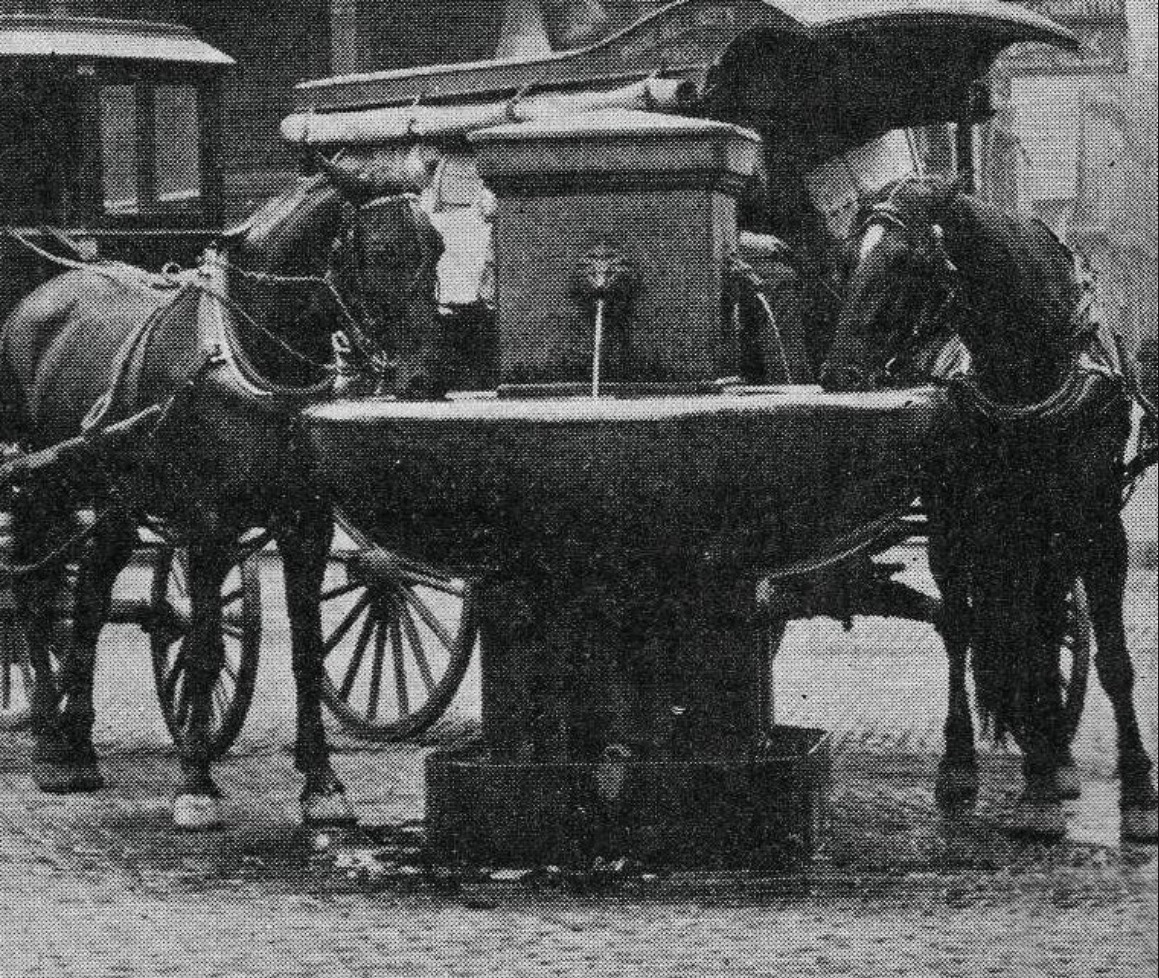
By 1905, the Society placed hundreds of watering troughs throughout the city for thirsty workhorses.
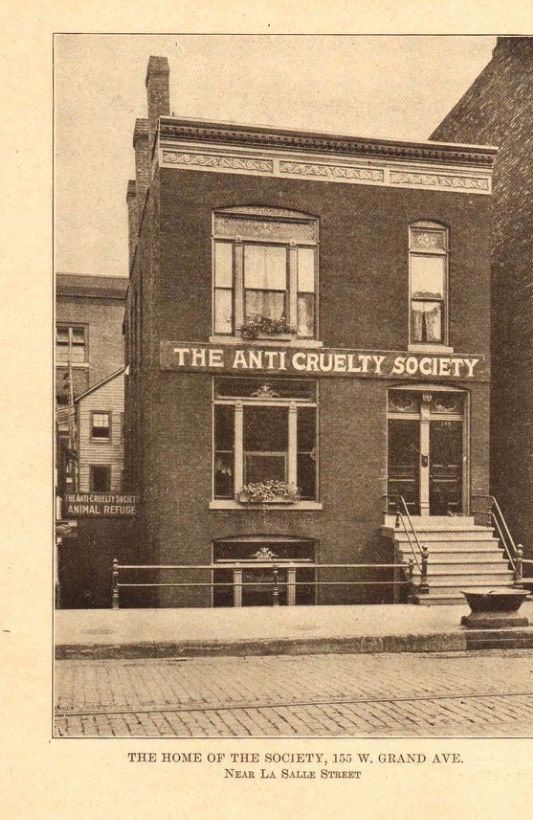
In 1910, the Society acquired a permanent home at 155 Indiana Avenue (now Grand Avenue). The building housed a kennel, administrative offices, classrooms and a humane library. That same year, 5,000 posters detailing the proper care of horses were distributed to stables across the city.
For more information about The Anti-Cruelty Society, visit anticruelty.org







